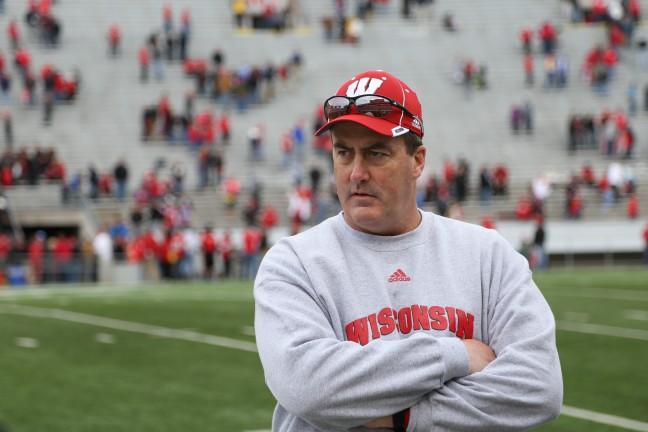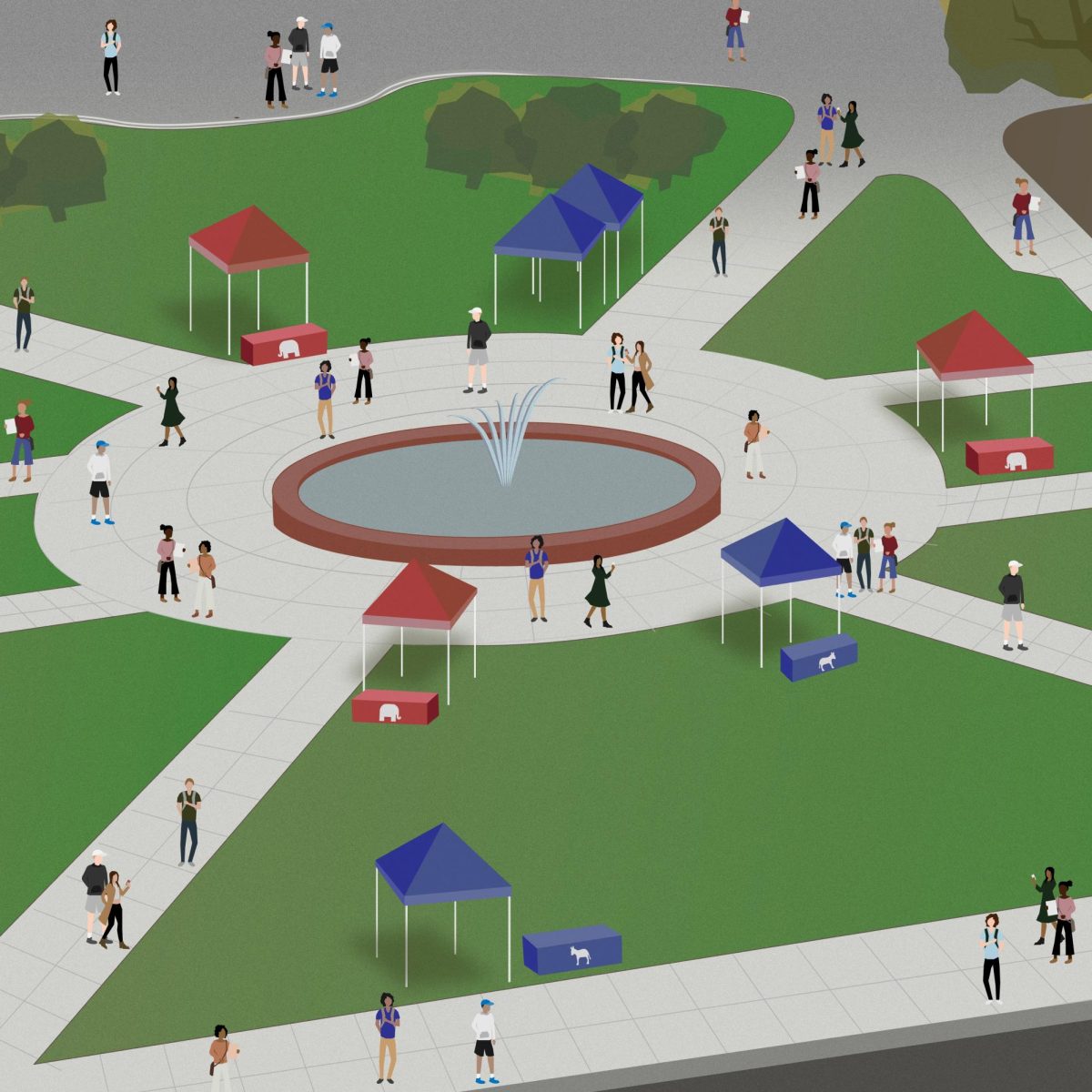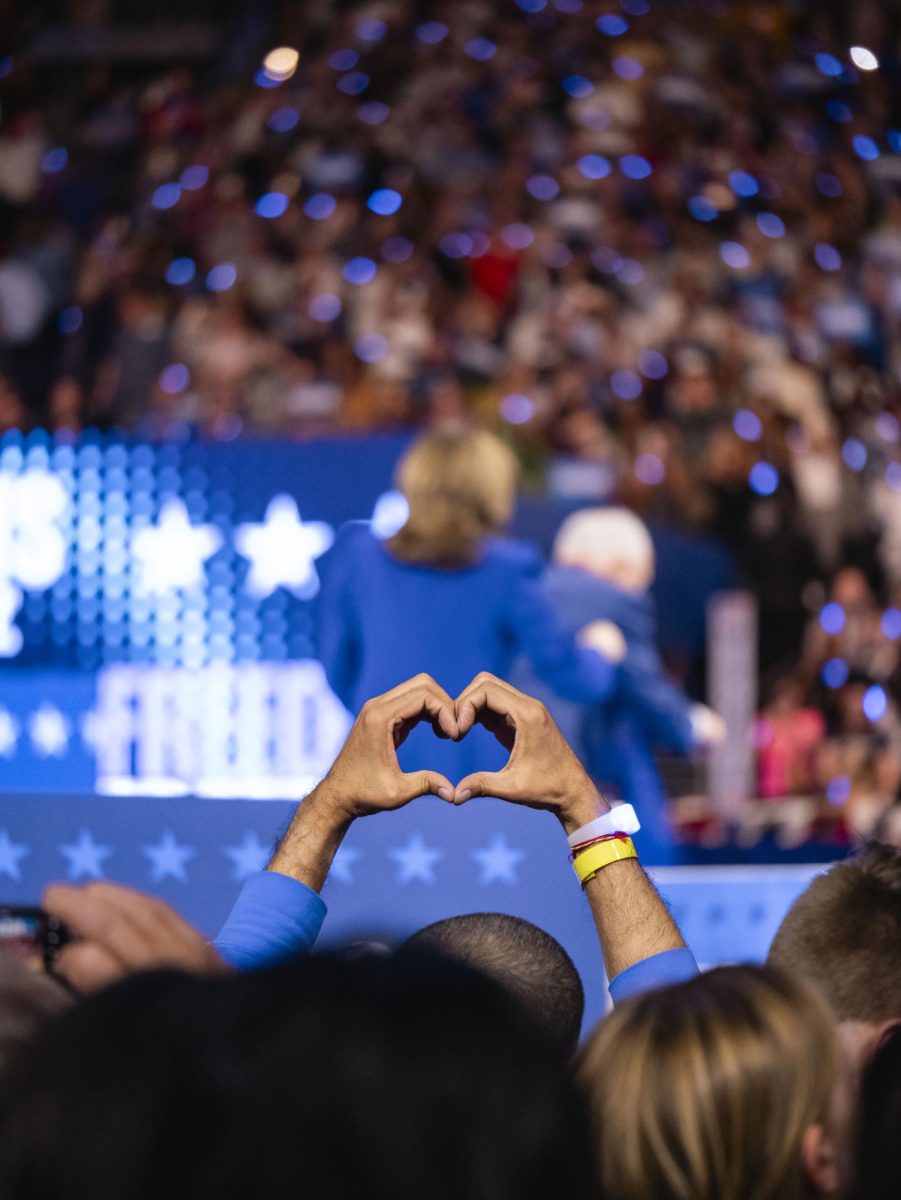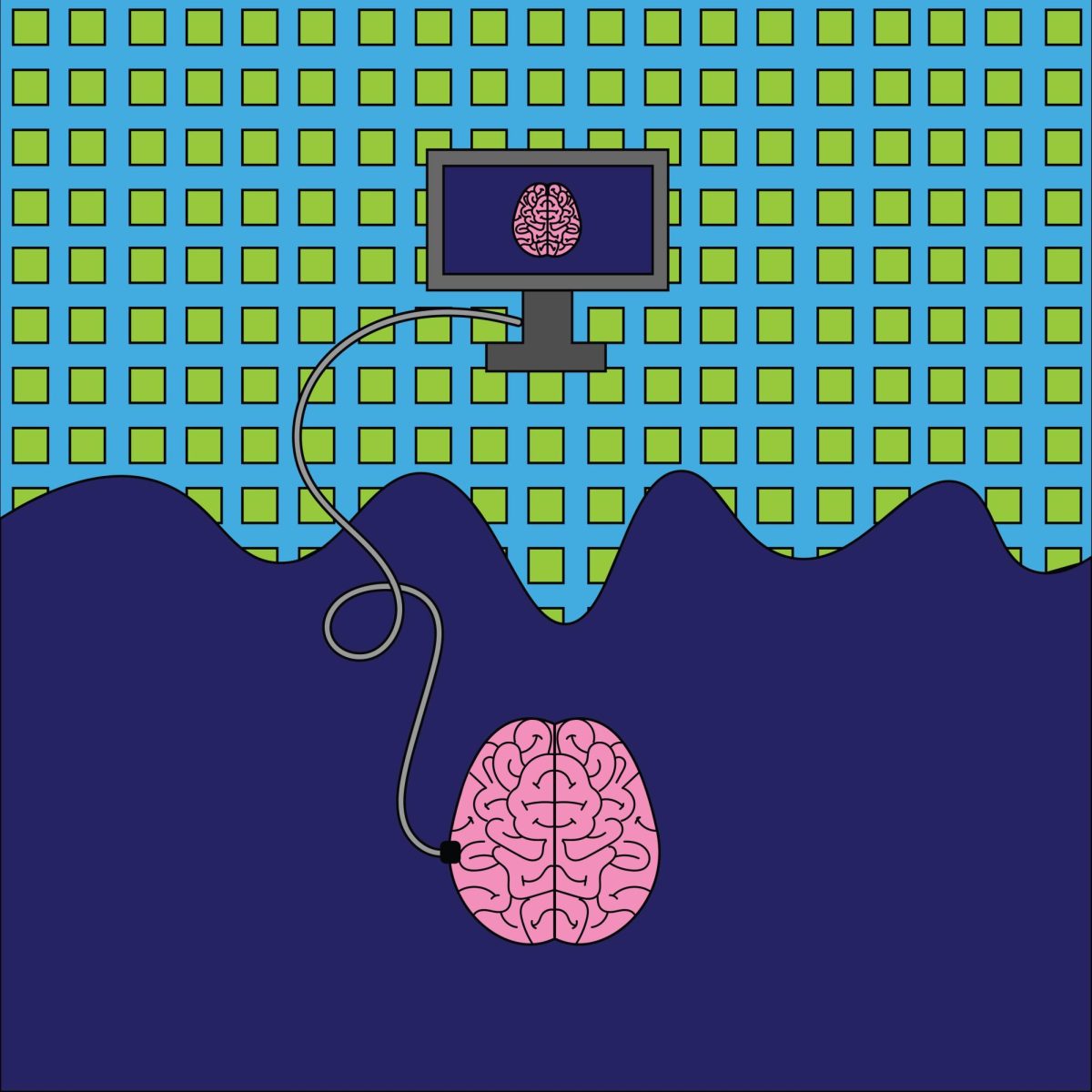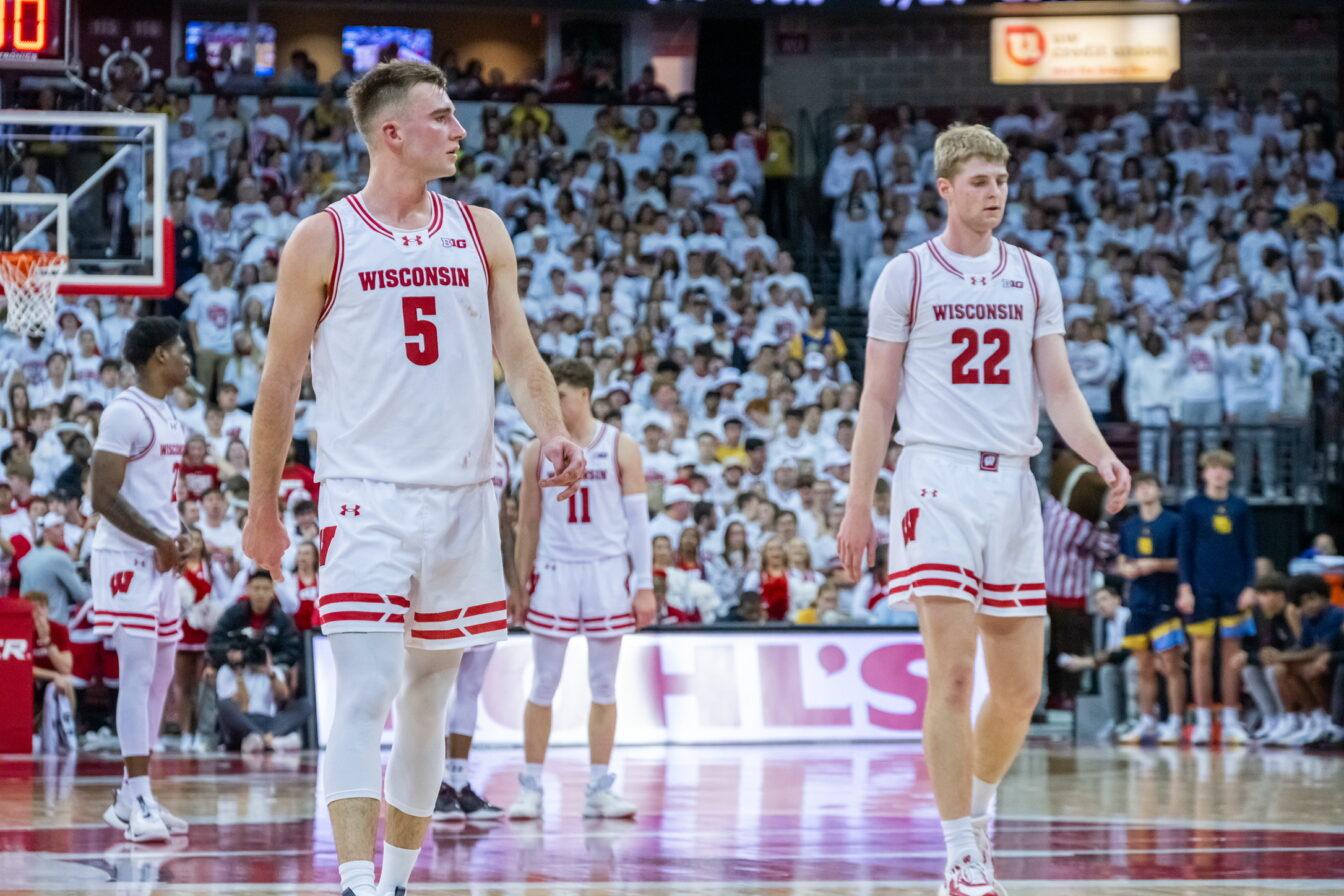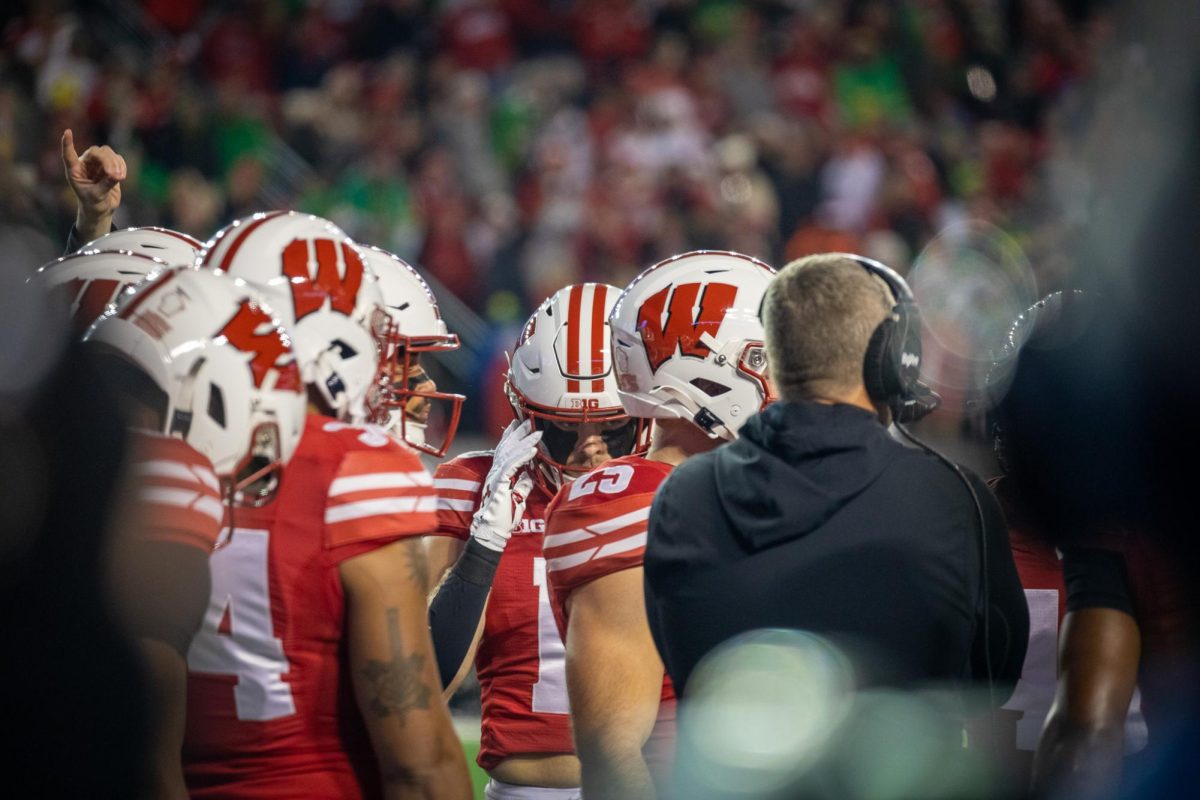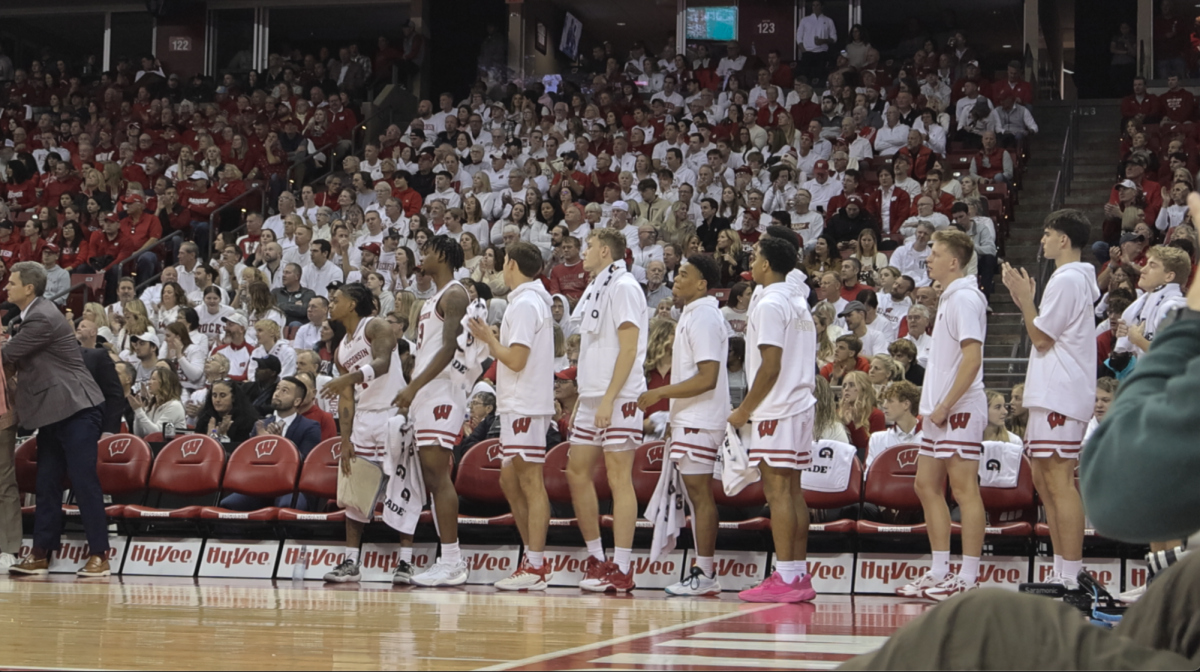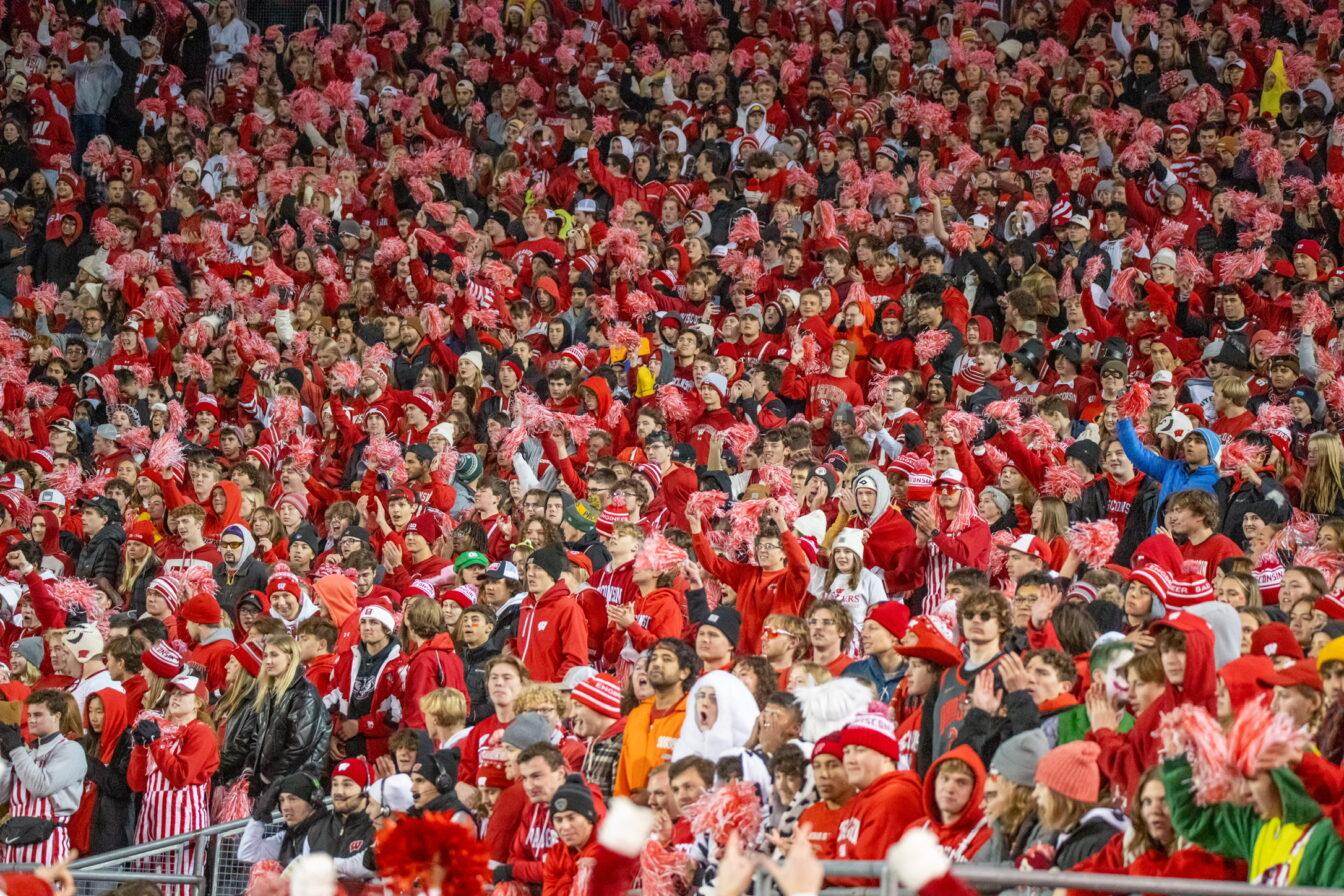There is something unique about the nature of Wisconsin athletics.
It’s not the iconic “Jump Around” celebration after the third quarter at Camp Randall Stadium or the atmosphere of the Kohl Center for a Big Ten rivalry game — it’s that if you look on the sidelines, there’s a good chance several coaches, across multiple sports, went to the University of Wisconsin.
The Wisconsin athletic department shows no signs of deviating from its current formula of prolonged athletic achievement through previous Badgers and in-state coaching staffs. Look, for example, at the recent alumni coaches that were hired for the men’s hockey team.
Wisconsin athletics are far from flashy, but the success of their results across numerous varsity sports has been unparalleled.

Wisconsin finds success in its own
After being hired this spring, Wisconsin men’s hockey head coach Tony Granato became the fifth head hockey coach to have attended UW and the seventh former UW System student head coach.
“When I came here I knew I wasn’t just coming here to coach a team,” Granato said last month. “I didn’t realize all the things that come along with it, and every one of them is exciting. It’s being part of somethings that’s bigger than just coaching hockey; it’s being party of a community, a university and the city of Madison.”
Granato isn’t the only former Badger who is part of the team’s coaching staff.
He is accompanied by two new assistant coaches — his brother Don Granato and Mark Osiecki.
“I get the opportunity to come back to the program that means a lot to me and gave me a chance to have a life after college,” Granato said. “I never really left the program.”

Wisconsin Athletic Department spokesperson Justin Doherty said there is a certain type of success that in-state or alumni head coaches bring to Madison that others who are not familiar with the program simply can’t emulate.
“Take any organization, any school, any professional team, any company — you want people working there that want to be there, that are passionate about your organization, that are good fits for your culture and, in our case, this university, for the city, for the campus, for the athletic department,” Doherty said.
High performing athletics despite low coaching salaries
The massive sum of revenues recently generated through college football and the bright lights of the national stage may lead some to believe that all head coaches are paid somewhere in the ballpark of University of Michigan head coach Jim Harbaugh’s $9 million annual total — but this isn’t the case at UW-Madison.
While the title of twelfth-highest revenue generating athletic program in country — with a grand total of nearly $124 million in 2014-15 — can carry a negative stigma, Wisconsin’s success on the field in different varsity sports is a financial feat unlike almost any other program in the country.
Take, for example, Wisconsin football head coach and UW-Madison alumnus Paul Chryst and the success of his Badgers compared to other football programs around the country. Chryst came into the 2015-16 season as the 43rd-highest paid coach among all NCAA Division I programs. Yet, his Badgers currently sit No. 8 in the College Football Playoff Poll.
Chryst makes $2.7 million a year, the eighth-highest salary in a Big Ten conference that averages $3.28 million salaries for its coaches.
Football: Wisconsin receives No. 8 in first College Football Playoff rankings
There are only four schools ranked in the top 25 that pay coaches less than UW-Madison pays Chryst, and Wisconsin is ranked higher than all four of them, with No. 17 Western Michigan University coming closest to the Badgers.
When it comes to men’s basketball, Wisconsin’s triumphs are perhaps even more striking. According to USA Today’s list of NCAA men’s basketball head coaching salaries, head coach and UW-Platville alumnus Greg Gard is the 43rd-highest paid head coach among the 68 total teams that participated in this year’s March Madness Tournament.
“It’s an honor and a privilege to be named the head coach at the University of Wisconsin,” Gard said in a statement announcing the hire. “I’m extremely thankful to Coach Alvarez, the Athletic Board and the Board of Regents for this incredible opportunity to lead my home-state program into the future.”

Of the 68 teams that made last year’s post-season tournament, 20 returned to the AP Poll’s NCAA men’s basketball top 25 preseason list for 2016-17.
With this season’s tipoff only weeks away, Gard and his Badgers head into the year as the No. 9 spot in the country.
“I’m looking forward to building on the great tradition at Wisconsin and representing my home state in a manner that can make Badgers fans proud,” Gard said.
Compared to these 20 returning ranked teams, Wisconsin boasts the lowest head coaching salary of all 20. Wisconsin’s Gard was also the lowest-paid head coach of all seven Big Ten teams to make the 2016 tournament, and the margin wasn’t even close.
The next closest annual salary to Gard was the University of Iowa’s head coach Fran McCaffrey, who ranked 20 positions higher than Gard with an annual total that tripled Gard’s.
Recruiting efforts target commitment over immediate talent
Doherty said having UW-Madison alumni as head coaches can help them make a unique connection with potential recruits, bringing up their own experiences on campus while they were students. This especially rang true when it came to hands-on knowledge of the school itself.
“These [alumni coaches] are guys that can speak to that intimately because they have experienced it themselves, so I think just having had the same or a similar experience to what a future student-athlete here might have just gives you a real leg up and a real boost to be able to speak from their own experience,” Doherty said.
Nearly 50 percent of Wisconsin’s football roster is comprised of in-state players too.
Men’s basketball: Badgers breaking recruiting trend, adding big-time talent
The most recent venture where Wisconsin strayed from this mold was when the football program hired Gary Andersen as its head coach in 2013.
Andersen had success on the field, who won 73 percent of his games at UW-Madison, yet disagreements with the culture here quickly turned to conflict. Though there were other factors involved, the brevity of his tenure in Madison was in part due to a frustration with the school’s elevated academic standards for student athletes. Specifically, Andersen found UW-Madison’s refusal to budge on academic exceptions for competitive recruits who could not make the minimum scores expected for enrollment difficult to work with.
Andersen decided to part ways with UW-Madison before completing his second season with the Badgers to become the head coach of Oregon State University.
When it comes to Badger recruits, UW Admissions gets final word
Both Wisconsin football and basketball have made a living off developing talent through dedication and commitment over four or even five-year periods.
Many other programs around the country cultivate athletic success through the consistent pursuit of immediate, high-powered talent acquisition, although most of the players that fit this kind of label often leave for professional leagues as soon as that becomes an option.
Hayes: In ‘one-and-done’ era, Nigel Hayes’ return isn’t so simple
But Wisconsin’s alternate approach has proved to be more effective at times. Look, for example, at the football team’s improbable victory over Louisiana State University. Or the basketball team’s triumph last year over the University of Kentucky, which had three of its freshmen leave for the NBA that year after getting drafted in the first round.
While this opposing strategy has proven successful for numerous schools, Wisconsin’s alternate approach has shown its ability to be even more effective at times. There is something to be said about the longevity of athletic success Wisconsin has maintained in recent years.
UW-Madison alumnus and former Badgers men’s hockey star, Mark Johnson, has established one of the most dominant women’s hockey programs in the country at UW-Madison. Since taking over the women’s head coaching position in 2002, Johnson has a total record of 395-95-75 — he’s one close to 82 percent of his games.
Johnson also comes from a family of Badger greats. He is the son of Hall of Fame coach Bob Johnson, UW-Madison men’s hockey coach from 1966-82.
Through four different head coaches, Wisconsin men’s basketball has earned a spot in the last 18 “March Madness” Tournaments, while its football team has made 14 consecutive bowl appearances. UW-Madison currently holds the longest active streak for most NCAA football bowl and men’s basketball tournament appearances at 14 years.
At the moment, Wisconsin is also the only school in the country who can boast a men’s basketball, football, volleyball and women’s hockey team who are all ranked in the top 10.
“They might be alumni, they might have played here, they might have lived here, but I think you can’t forget that in addition to that, they’re talented coaches,” Doherty said. “These are people that have been very successful wherever they have gone.”


